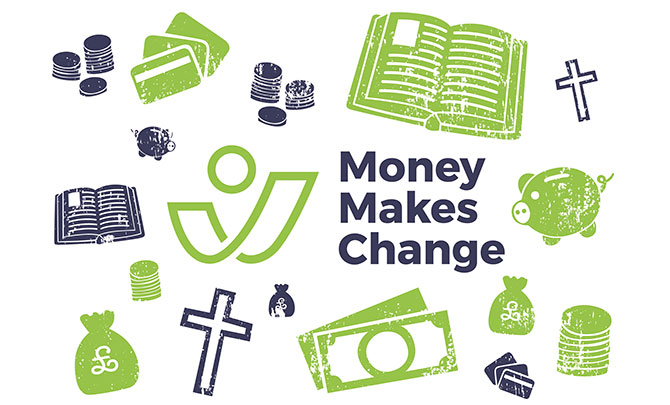The £1m church - Reform Magazine
How churches can change the world with their money – and not just what goes in the offering. By Rosie Venner
Let’s imagine your local congregation has £1m every year to tackle poverty and to build a fairer, more sustainable world. Last year, you enabled cocoa farmers in Tanzania to send their children to school, invested in an organic orchard, helped build a wind turbine and supported homeless young people into employment. You’ve got big plans for next year too.
Does this scenario sound far-fetched? It doesn’t have to be. Take a closer look. If we add up the total spending power of members in a church with 40 households, based on an average household income of £25,000 a year, it comes to £1m a year.
It’s not, of course, sitting under a metaphorical church mattress. That £1m goes back into wider society, through spending on housing costs, transport, food, gas and electricity, clothing, entertainment and other goods and services.
Some of us may have enough to save money in a bank account or a pension. Some will have far in excess of that average income, others barely enough to live on. Many of us will give money away to charity, to church, to friends and family.
When we talk about money in church, we are often just talking about that last bit – the money that we give away – and those are important conversations to have. And yet, every time we use money – whether we save it, spend it, invest it or give it away – we play a part in shaping society…
Rosie Venner is Money Makes Change Programme Manager for the Ecumenical Council for Corporate Responsibility (ECCR). For ‘Restoring Hope’ events, visit www.eccr.org.uk/events. Resources equipping Christians to make ethical financial choices are available from ECCR at www.eccr.org.uk/learning-materials
___
This is an extract from an article published in the October 2020 edition of Reform












Submit a Comment